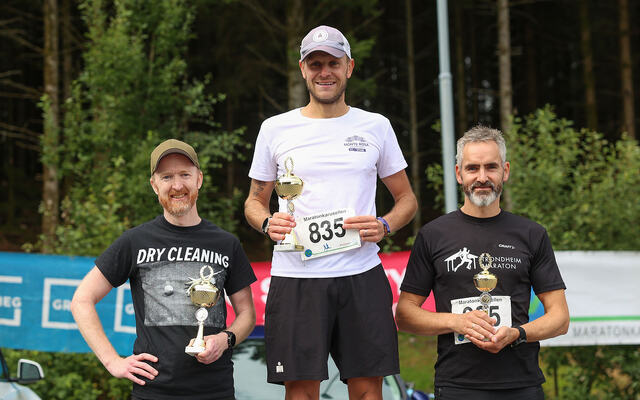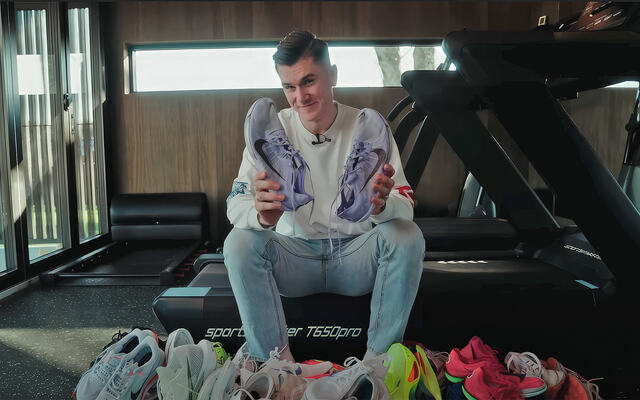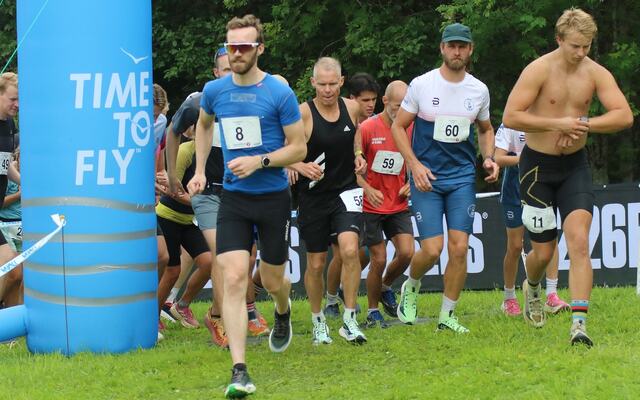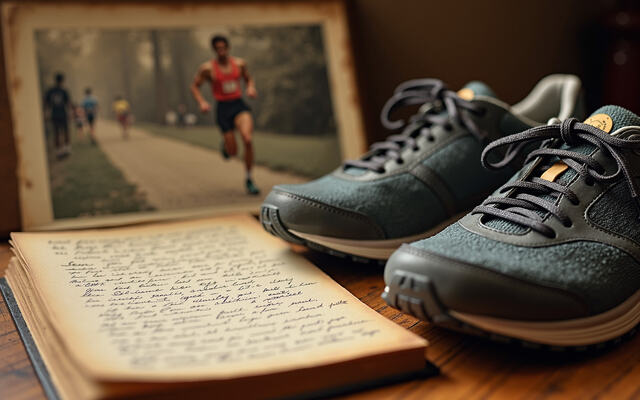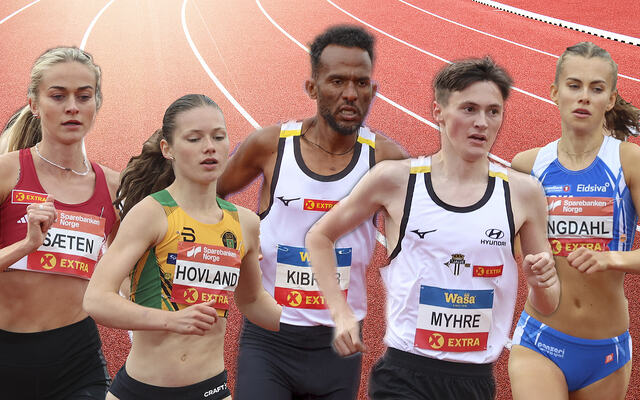 Bilde: Dr. Juks Kilde: Ultramarathon World The doctor who cheated in marathons Norman Barwin tracked for years by Roger Cobbledick By David Blaikie Ultramarathon World Ottawa, Ontario (UW) - When Norman Barwin was disqualified from the 2000 Boston Marathon and the 2001 National Capital Marathon, the incidents were portrayed as more or less harmless lapses by an accomplished age-group runner. But was this the case? Did the man who happens to be an Order of Canada winner and international expert in womens reproductive health have a spotless athletic record outside these high profile endurance races? Roger Cobbledick, who has been quietly collecting information on Barwin's running history for a number of years, is not convinced. I consider all of his results (see list below) questionable, with the possible exception of the 55:34 for the Nordion 10Km in 1996 and the 37:21 for the Beat Beethoven 8Km run in 1996, Cobbledick says. "Personally, I would like to witness him run any time that is close to 40 minutes in a 10km or 90 minutes in a half marathon." Barwin was invited on several occasions to talk with Ultramarathon World about his marathons and the information brought forward by Cobbledick - and others. A message was left at his home Dec. 14. A three-page fax containing 13 questions was sent to his office on Dec. 15 and also to the Infertility Awareness Association of Canada (where he serves as president). The IAAC confirmed on Dec. 16 that the e-mail message was received and his medical office confirmed on Dec. 17 that the fax number was valid. On Dec. 18, Barwin was advised (again by fax) of the date the UW article would be published, and again he was invited to comment. There was no response. Alerted organizers in advance Cobbledicks curiosity is based on more than idle speculation. He has been tracking Barwin's race performances for years. If it had not been for Cobbledick, Barwin might not have been disqualified at Boston or Ottawa. Organizers at both races were alerted in advance by Cobbledick to be on the lookout for Barwin because of a pattern of odd incidents over several years. Subsequently, Barwin was found not to have run a major portion of both marathon routes. In Boston, he missed seven of 10 timing mats in Boston, crossing only the starting mat, the 5Km checkpoint and the finish line mat. In Ottawa, he did not appear in videotape shot by a second-loop surveillance camera. The findings led to his disqualification from both races. Barwin has acknowledged not running the full distance at either the Boston or Ottawa races. He has not confessed specifically to cheating, but he did say, when interviewed for a long feature published by the Ottawa Citizen (16 Nov. 2002), that his behaviour at each race was "quite out of character." ChampionChip blamed Initially, Barwin told the Citizen he had run the full course in Boston and that a faulty ChampionChip may have been responsible for his missing split times. Marc Roy of Sportstats, head of the largest race timing company in Canada, dismisses the notion that a race chip might work at some checkpoints and fail at others. Chips dont fail, he told Ultramarathon World. The only way they fail is if they are not registered in the database, and even then they register a no-name response. Chips are attached to the shoes of runners and make use of radio frequency identification (RFID) technology to record start, split and finishing times during a race. They contain no power source of their own. Instead, they are activated as they pass through a magnetic field at points where timing mats are placed in a race. Questioned further by Citizen reporter Glen McGregor, Barwin acknowledged that he had not run the entire course (at Boston or Ottawa) and cited a recurring hernia problem as the reason. The fact that he ended up being recorded in the results happened because he spotted friends running the final stages of each race, and he decided to run with them to the finish line, he said. Explanation does not match certain facts This account of events does not match certain known facts about the two races: In the case of the 2000 Boston Marathon, Barwin told the Citizen he dropped out of the race before the 10Km mark and a friend gave him a ride into the city. Once there, Barwin said he rejoined the race for the final stretch to the finish with a group of friends because he wanted to experience the exhilaration of crossing the finish line. His explanation of what happened in Ottawa in 2001 was similar. After dropping out early in the second loop of the two-loop course (which takes runners out and back along the Rideau Canal), Barwin said he rejoined the race to run the final kilometre with a training partner. I waited for my friend to run by, and I just ran back with the person, he told McGregor. Who were these people? How did a friend manage to locate Barwin in the Patriot's Day crowds and traffic, and drive him back into Boston? (An estimated two million race fans line the Boston course each year and road closures seriously disrupt local traffic patterns.) And who were the friends Barwin joined back in the city for the final stretch to the finish line? Who also - the following year in Ottawa - was the friend who accompanied him to the finish line there? Identity not apparent Barwin has not said publicly but, taking him at his word, the final results in both races should provide a good indication. In Boston, the initial results of the 2000 marathon (prior to Barwin's disqualification) were published April 18, 2000, by the Boston Herald. Barwin was listed as finishing in 3:17:44. Yet no obvious cluster of friends crossed the finish line with him. The 10 finishers immediately in front of Barwin came from six different states. None was Canadian. The next eight after him were from seven states, plus one Canadian province. This is the order of finishers (immediately before and after Barwin) as listed in the Herald: Runners who finished near Barwin at 2000 Boston Melissa Bowser Massachusetts 3:17:40 Christophe Hakulin Texas 3:17:40 Francis Farrell Pennsylvania 3:17:40 Thomas Corrigan Pennsylvania 3:17:40 Brian Savage Massachusetts 3:17:41 Michael Davis Massachusetts 3:17:41 Philip Carol New York 3:17:42 John Kaczmarek Connecticut 3:17:43 Joseph Dennehy North Carolina 3:17:43 Robert Kennedy Connecticut 3:17:43 Norman Barwin Ontario 3:17:44 Johann Bjornsson Florida 3:17:44 Bob Rigney Kentucky 3:17:45 V. Ross Tennessee 3:17:45 John Henry New York 3:17:45 Glenn Jones New Jersey 3:17:45 Lilly Zsolnay Illinois 3:17:45 Peter Ulmonen Missouri 3:17:45 P. Mark Vivian Ontario 3:17:45 Spot checks Spot checks by UW with several of these runners turned up no one who knew Barwin, including Johann Bjornsson, an Orlando, Florida, marathoner. Bjornsson was the only other runner in Boston that day to record exactly the same time as Barwin (3:17:44). Contacted at his Florida home, Bjornsson said he had never met Barwin. I wasnt aware of anyone from Canada - I happen to be Canadian," he said. "If he had started talking, Im sure I would have noted it. I used to live in Toronto and I still have two sisters living in B.C. P. Mark Vivian, a Toronto runner who crossed the line one second behind Barwin, was the nearest Canadian to the Ottawa runner. Vivian told UW he did not know Barwin and had no recollection of him. "I'm afraid I don't remember him at all," Vivian said. Another Canadian, Kevin Anzik of St. Catharines, Ontario, finished eight seconds prior to Barwin. He too said he had never met the Ottawa doctor. No, this is the first Ive heard of him, Anzik said. Quick follow-up Boston organizers followed up promptly. Three days after the 2000 event, race director Guy Morse sent Barwin a registered letter requesting any information that may be helpful to explain why he had missed seven consecutive training mats along the point-to-point course which starts in the town of Hopkinton and ends on downtown Boylston St. Specifically, Morse requested details about the clothing Barwin was wearing and other visual identification that might identify him in race videos. He also asked for any split times that Barwin could provide, and the names of companion runners, etc. When no satisfactory explanation was received, the Boston Athletic Association (BAA) disqualified Barwin on May 12, 2000, banning him permanently from the future Boston Marathons. In the case of the Ottawa marathon, Barwin told the Citizen he crossed the finish line while running the last portion of the race with a training partner. He also said he advised a race official he had not run the full course. However, the race results, and interviews with race officials, differ from this account of events: Here is a list of the runners who crossed the finish line immediately before and after Barwin. Rather than finishing side-by-side with any other competitor, the results show Barwin crossed the line alone − 38.7 seconds behind Bruce Biggin of Toronto and 21.5 seconds ahead of Gerard Gravel of Jonquiere, Quebec. The nearest runners from the Ottawa area were Lou Laflamme at 3:02:56.0 (more than a minute, 62.9 seconds, ahead of Barwin) and Chris Jermyn who was 37 seconds behind him. Runners who finished near Barwin at Ottawa * Jacinda Raiche Venice California (F) 3:00:05.3 Audrey Nelson-Wagenaar Toronto, Ontario 3:00:54.5 Joselyto Bouchard Geary New Brunswick 3:00:58.4 Mailet, Rudy St-Hubert, Quebec 3:01:21.8 Michel Landry Gloucester, Ontario 3:01:41.7 Sadik Tokgoz Mississauga, Ontario 3:02:12.2 Louis Tremblay Rimouski, Quebec 3:02:21.3 Maher Kassar Montreal, Quebec 3:02:35.2 Guy Leclerc Neufchâtel, Quebec 3:02:47.7 Lou Laflamme Ottawa, Ontario 3:02:56.0 Jean-Yves Levesque St-Hilaire, Quebec 3:02:56.8 Nick Spagnoletti Baldwinsville, New York 3:03:11.9 Karen Cowling Hanmer, Ontario 3:03:22.7 Paul Rooks Oakville, Ontario 3:03:24.2 Josh Cobden Toronto, Ontairo 3:03:22.2 Bruce Biggin Toronto, Ontario 3:03:20.2 Norman Barwin Ottawa, Ontario 3:03:58.9 Gerard Gravel Jonquiere, Quebec 3:04:20.4 Sean Michael Hillsdale, Canada 3:04:32.9 Chris Jermyn Ottawa, Ontario 3:04:35.9 Harry Neynens Elmsdale, Nova Scotia 3:04:35.9 Jackie Holloway Vancouver, B.C. 3:04:54.4 Steve Permnutter Winnipeg, Manitoba 3:04:52.7 *Chip times 'Where is the guy?' Jermyn, who had heard of Barwin for several years but never actually seen him at a race, was surprised to discover the doctor had finished just ahead of him. He looked for Barwin in the finishing area and could not find him. I thought, Where is the guy?" Jermyn told the Citizen. "Ill go up and congratulate him. Jermyn was declared the winner of the 60-65 division when Barwin was later disqualified. Gerard Gravel, the next runner to finish after Barwin, told UW he was aware of Barwin only because his name appeared in the Ottawa results and he noted they were in the same age group. However, Gravel said he had never met Barwin and had no contact with him during the Ottawa race. Barwin declined, when questioned by the Citizen, to identify his "training partner," saying the individual would not want to be drawn into a public controversy. Neither is it clear who Barwin spoke with at the finish line. Two of the top Ottawa marathon officials, race director John Halvorsen and finish-line co-ordinator Glendon Pye, say their inquiries turned up no one who had spoken to Barwin at the finish line or immediately after the race. Watched Barwin's finish However, Pye, a good marathoner in his own right (with a 2:58 personal best time, identical to the one Barwin used to qualify for Boston), remembers Barwin well. Organizers were watching for him to arrive because of the alert they had received by Cobbledick. I saw him come in, Pye told UW. I was standing at the finish line, and you know how you get a feeling when something isnt quite right? He seemed to be making a production about coming across (the finish), swinging his arms, not like in victory, but sort of in circles. And he had the lean going. He was not running like the others. He also had a sweater tied around his waist. That was another thing that caught me as a little strange. Normally, runners the caliber of three-hour marathoners do not compete while carrying extra clothing. If they wear additional garments at all, it is often at the start, when they are still warming up. After that, they tend shed excess clothing quickly in order to run as unencumbered as possible. If Barwin was looking for a race official at the finish, Pye would have been the most visible organizer to notify that he had not run the full course. The two never spoke. Also, Pye told UW he did not see Barwin speak to any other race volunteer. Age awards held up Some time later, when marathon director John Halvorsen first contacted Barwin, the doctor made no mention of speaking with anyone at the finish line. You would have expected him to mention it then, Halvorsen told UW. As soon as Barwin arrived, Pye dispatched a volunteer to follow him. "I said go find out what his number is. Somebody got me the number and I took it to Manny Rodrigues, Pye recalls. Rodrigues, the elite athlete coordinator for the race, passed it on to Halvorsen, and a hold was placed on the awarding of prizes in the 60-64 age group category. Subsequently, Pye, Halvorsen and other race organizers reviewed a videotape of the race, shot in a parking lot at the turnaround point, off Heron Road in Ottawa South. Barwin appeared in the first loop of the race, but not in the second. Split times taken at the start/finish showed Barwin with a half-marathon time of 1:31:05 (and a second half split of 1:33:06). Roger Cobbledick, who also running the race, remembers passing Barwin around the 9km or 10km point on the first loop. He recognized him because a photo of the doctor had been published a few weeks earlier by the Citizen − with an April 1, 2000, feature on Barwin's medical career. Cobbledick had clipped the photo and kept it. Pace looked slow Given the pace he was running at, I was surprised that he was ahead of me (at that point in the race), Cobbledick recalls. "Later, I was again surprised at the time listed for him for the half marathon split (1:31:05). I was sure that he did not pass me during the remainder of the race, yet when I looked at the results he was listed as finishing approximately 2 minutes and 25 seconds ahead of me. This is the only time I had ever seen him at a race. I had looked for him previously before the start of races, during races and after races had finished and I had never seen him before. Following the marathon, Cobbledick notified the Canadian Masters Athletic Association (CMAA) of his concerns. His information prompted J. C. A. Castle, president of the CMAA, to write to the National Capital Marathon (NCM) and ask for an investigation. The CMAA had a direct interest in the integrity of the race because it had designated the 2001 Ottawa race its national marathon championship" for masters runners. Officially disqualified It took several weeks, and several telephone calls and letters, to complete the NCM inquiry. In the course of carrying it out, Halvorsen forwarded a copy of the CMAA letter to Barwin and requested a meeting to review the videotape and discuss other aspects of the race. Discussions went back and forth, but no meeting was ever held. Instead, Barwin suggested that his name be removed from the results, and the NCM agreed. Officially, he was disqualified at his own request. That ended the matter, and with it so far as is known the competitive running career of Norman Barwin. He seems not to have entered any races since. But that is not the end of his running story. The incident has been much discussed within local running circles and Cobbledick, in particular, has spent considerable time checking other races Barwin has entered over the years. Great camaraderie As in most cities, Ottawa runners tend to know each other well, especially within their own age group. They compete ferociously. But they also share a great camaraderie, and are often one anothers biggest fans. It upset Cobbledick to think that friends like Chris Jermyn might be cheated out of honours and prizes earned with their own sweat and effort. Cobbledick researched old race results, talked with fellow runners and gradually assembled a file of information. Every serious runner in the same age category seemed to be aware of Barwin but finding someone who knew him and had seen him at races was another matter. As far as Cobbledick could tell, Barwin seemed not to linger in the finishing area of races, and he was often absent when prizes were handed out which was strange, since he frequently won or placed highly in his age division. Cobbledick has put together the following file of known races in which Barwin was a participant. His recollections and observations are included with each race: Races by Norman Barwin - with observations by Roger Cobbledick Race Name Date Time Age Group Place 1. Nordion 10Km 11 May 1996 55:34 55-59 1273 (overall) Observations: "After the 1998 Run for Reach, I checked for any previous race results I could find for Norman Barwin. The only ones I could find were 55:34 for the Nordion 10Km in 1996 and 37:21 for the Beat Beethoven 8Km, also in 1996. This was a bit surprising given his excellent time in the 1998 Run for Reach." 2. Beat Beethoven 8Km 5 Oct 1996 37:21 50 & Over 202 (overall) Observations: "See notes to No. 1 above." 3. Run for REACH 10Km 19 Apr 1998 36:11.9 50-59 1 (age class) Observations: "Since 1994, I had run a total of 75 local road races and knew or recognized many of the local runners, especially the faster ones in the 50 to 59 age category. Chris Jermyn (37:07.8) and Tom Dafoe (37:34.2) were listed in second and third places in the age category. I knew both Chris and Tom and admired their running abilities. The Microsoft Run for REACH is an out and back course along Queen Elizabeth Drive in Ottawa. This gives a good opportunity to see the runners ahead of you. After the race I was surprised to see Norman Barwin listed ahead of Chris and Tom. I was sure that there was no runner ahead of them who appeared to be in the same age category. Norman Barwin did not show up for his award so I did not get a chance to see what he looked like." 4. N.C. Half Marathon 10 May 1998 1:31:01 55-59 2 (age class) Observations: "I ran the Nordion 10Km the night before and did not run in this race. Results downloaded from the Sportstats internet site the day after the race do not list a Norman Barwin finishing the race. Later results from the same internet site show Norman Barwin finishing second in the 55-59 male category in 1:31:01. His name was added for whatever reason." 5. Run for REACH 10Km 18 Apr 1999 39:48.7 60 & Over 1 (age class) Observations: "I was in Boston and missed this race. It was a ChampionChip timed event. A no name runner appears in the official results immediately after Norman Barwin. It would appear that Barwin was wearing two chips." 6. N.C. Half Marathon 9 May 1999 1:24:18.4 60 & Over 1 (age class) Observations: "Again, I ran the Nordion 10Km the night before and did not run in this race." 7. Victoria Marathon 10 Oct. 1999 2:58:41 60-64 1 (age class) Observations: "There was no ChampionChip timing, and apparently no video surveillance, at this marathon, where Norman Barwin qualified for the 2000 Boston Marathon. An impressive time for a first marathon at the age of 60, and from what I remember ranked in the top three seeded times for Seniors at the 2000 Boston Marathon." 8. Boston Marathon 17 Apr 2000 3:17:44 60-64 14 (age class) x Observations: "Norman Barwin was disqualified from the Boston Marathon after failing to account for missing seven mats on the course." 9. Beat Beethoven 8Km 7 Oct 2000 31:59.9 60-64 1 (age class) Observations: "I was running this event after a marathon six days earlier, so I was a bit slower than usual. This was not an out and back course but there was a loop section on the parkway that afforded the opportunity to see runners in front. I did not see Norman Barwin in front of me during this section of the race, and I did not see him pass me, despite looking out for him. Yet there was his name in the results, finishing approximately 19 seconds in front of me. I did not see Barwin before the start of the race, during the race or after the race (despite similar race times) which was somewhat surprising. Once again he was not present for his award. Like the 1999 Microsoft Run for REACH it would appear that Barwin was wearing two chips ..." 10. Ottawa Marathon 13 May 2001 3:03:58.9 60-64 1 (age class) x Observations: "I am sure that I passed Norman Barwin at approximately the 9 Km or 10Km mark. I had a good look as I went by; no number was visible front or back to provide confirmation. Given the pace he was running at, I was surprised that he was ahead of me. Later, I was again surprised at the time listed for him for the half marathon split (1:31:05). I was sure that he did not pass me during the remainder of the race, yet when I looked at the results he was listed as finishing approximately 2 minutes and 25 seconds ahead of me. This is the only time I had ever seen him at a race. I had looked for him previously before the start of races, during races and after races had finished and I had never seen him before. x = disqualified Letters to Ottawa Citizen One of the interesting sidelights of the Barwin case was the public reaction that followed publication of Glen McGregor's article in the Ottawa Citizen. A flurry of letters to the editor poured in, most critical not of Barwin but of the newspaper for scandalizing such a prominent member of the community. Thomas W. Curran of Ottawa, in one of several letters published by the paper on Nov. 19, said he was appalled and demanded that McGregor and the newspaper apologize to Barwin. He is one of the finest citizens this city can boast of, Curran wrote. His contributions to medicine and prominent social causes are too many to mention. He earned the Order of Canada for what he has given to this country since coming here from South Africa. He has helped thousands of couples get through reproductive crises. He has spearheaded some of our most important research and gynecological issues . As it happens, it seems he did not finish either the Boston Marathon or Ottawas National Capital Marathon. So what? The article concedes that he notified the Ottawa authorities at the finish line that he had not completed the race, and that he ran to the finish line in Boston to feel the exhilaration of doing so a reward for remarkable dedication to running which I gladly concede him. 'No possible justification' David Blackburn of Kanata asked: What is next - front-page exposes of prominent citizens who have taken the odd foot-wedge at the golf club or creatively pegged cribbage scores? There is no possible justification for this article other than to publicly embarrass Dr. Barwin. And you have probably succeeded, much to your shame. Mitchell Bellman, executive director or the Jewish Community Council of Ottawa, was perplexed that the Citizen would embarrass such a pillar of the community. I know Dr. Barwin to be an outstanding volunteer, philanthropist and community-minded individual Whatever occurred in running races the Citizen investigated, Dr. Barwin never sought recognition for his performances other than the personal satisfaction of meeting an amateur fitness goal. Whenever the Citizen digs up dirt of this kind all it does is serve to dissuade people from getting involved in public life. K. A. Lowe of Pakenham said cheating in a marathon was not worth reporting. Here is a man who should be praise for his dedication to help others, and not publicly humiliated for a small indiscretion that did not hurt anyone. Bob Plamondon, a two-time National Capital Marathon finisher, was also sympathetic to Barwin. I hope that after having his story prominently featured in the Citizen that Dr. Barwin can find the strength and courage to turn this difficulty into something positive, he wrote. Second round of letters Three days later another series of letters was published by the newspaper. This time the tone was less sympathetic to Barwin. The spate of letters defending the local doctor who found a simple way to obtain an unfair advantage over his fellow competitors in marathon runs provides evidence that our species is not much inclined to ethical behaviour, wrote George Simpson of Ottawa. While many may deplore the endless scandals in government and big business, the failure of many of our citizens to pay their income taxes, and the thriving black-market economy, all efforts to ensure an unfair share of the economic pie, should be seen as evidence of who we really are. Morality and ethics serve to define ones ethics and character, added Lorne Werbenuk of Ottawa. In Dr. Barwins case, it seems that some readers believe accomplishments supersede generally accepted societal principles relating to our value system. Its okay to cheat, be immoral or dishonest as long as one possesses some sort of redeeming public accomplishments as an offset. Explain that to your children. Marathoner Bill Williams Bill Williams of Richmond, a long-time marathon runner, said Barwins action was indefensible on a practical level.. Finish line procedures would be all but impossible if even a minor percentage of race participants reacted the same way. Thankfully, most participants seem to have more common sense. You would expect at least as much of Dr. Barwins education and standing, Williams added. Some of his many friends and supporters should also inform him that the real exhilaration in finishing a marathon comes not from simply crossing the finish line but from crossing it in a state of near agony, having fought mentally and physically to complete this demanding test of endurance and having run every step of the way. Footnote: The mystery that lingers most strongly in the wake of the Barwin case is why anyone holding such a prominent position in the community would risk the embarrassment that has resulted from his case. There is no obvious explanation. The UW invitation remains open to Barwin. It would be enlightening to know the full story from his own perspective. |
Doktoren som jukset
Dr. Norman Barwin er en høyt ansett kanadisk lege og forsker - bl.a vinner av "Order of Canada" - en "samfunnet støtte". Eller, er han det? - det er mye rart som rører seg i hodet på folk... - les om David Blaikies historie nedenfor om "doktoren som jukset" - og så til de grader...
Siste medlemssaker
Annonse


